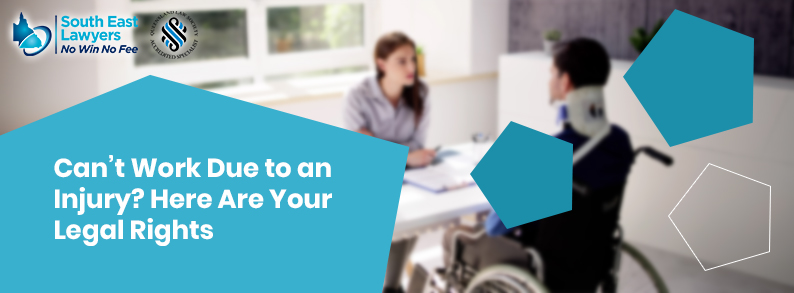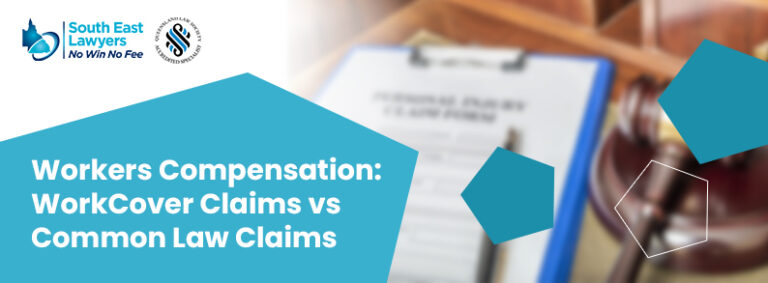Understanding your legal rights when you’re unable to work due to an injury is vital. Australia’s legal framework offers specific protections and benefits based on where and how the injury occurred. Whether it happened at work, outside the workplace, or in a public setting, your rights can vary significantly.
This article is here to provide clarity on Australian injury laws. We’ll explain the distinctions between work-related and non-work-related injuries and why the duration of your injury matters. We’ll also touch on the legal options available to you for seeking compensation or justice.
By knowing your rights, you can better navigate the legal system and ensure you receive the support and protection you need during challenging times when you can’t work due to an injury.
Types of Injuries in Australian Law
In Australian law, injuries are categorised into distinct types, each with its own set of rights and benefits. Understanding these categories is essential for individuals who find themselves unable to work due to an injury. Here, we delve into the various types of injuries and the associated legal considerations:
1. Work-Related Injuries
- Work-related injuries refer to injuries sustained in the workplace or during the course of employment. These can range from minor accidents to serious health conditions developed due to work-related factors.
- Australian workers’ compensation laws govern the rights and benefits of individuals with work-related injuries. Workers’ compensation typically includes coverage for medical expenses, wage replacement, and rehabilitation services.
- In cases of work-related injuries, employees have the right to file for workers’ compensation claims, ensuring they receive the necessary support and financial assistance during their recovery.
2. Non-Work-Related Injuries
- Non-work-related injuries encompass injuries that occur outside of the workplace, such as accidents in public places or personal injuries unrelated to employment.
- Rights and options for individuals with non-work-related injuries in Australia can vary. Depending on the circumstances, they may have the opportunity to pursue legal claims, such as public liability claims or personal injury lawsuits.
- The legal distinctions between work-related and non-work-related injuries are crucial to determining the appropriate course of action and potential compensation.
3. Long-Term vs. Short-Term Injuries
- In the context of injury law, the duration of the injury is an important factor. Injuries can be categorised as either long-lasting (chronic) or short-term (acute).
- Long-term injuries refer to conditions that persist over an extended period, affecting an individual’s ability to work for an extended duration.
- Short-term injuries are typically temporary and may result in a temporary inability to work.
Workers’ Compensation Rights
When it comes to work-related injuries in Australia, understanding your rights and entitlements is crucial. Here’s an overview of workers’ compensation rights and the processes involved:
Workers’ Compensation System in Australia
Australia has a well-established workers’ compensation system in place to protect and support employees who sustain injuries in the workplace. Each state and territory has its own workers’ compensation scheme, and while they generally follow similar principles, you may find it beneficial to work with an injury lawyer experienced in workers’ compensation matters as the process of compensation can be complicated.
Workers’ compensation is designed to provide financial and medical assistance to employees who are injured or become ill due to work-related activities. It covers a wide range of injuries, from physical accidents to occupational diseases.
The Claim Process
- If you’ve suffered a work-related injury, the first step is to report the injury to your employer. It’s crucial to do this as soon as possible.
- After reporting the injury, you can initiate a workers’ compensation claim. The process may vary slightly depending on your location, but it typically involves filling out a claim form provided by your employer or their insurance provider.
- Claims are assessed to determine the validity of the injury and the benefits you are entitled to receive. This may include compensation for medical expenses, lost wages, and rehabilitation services.
Legal Protections
Injured workers in Australia are protected by legal rights that prevent discrimination or unfair treatment due to their injury or workers’ compensation claims. It’s illegal for employers to terminate employees solely because they’ve made a claim.
Workers’ compensation laws are designed to ensure that injured workers receive fair and just compensation for their injuries. These laws also provide a framework for dispute resolution if there are disagreements regarding the claim.
Personal Injury Rights
Individuals who sustain injuries outside of work or in public places in Australia have specific rights and legal options. Here’s an overview of these personal injury rights:
Legal Options
Individuals who suffer non-work-related injuries have several legal avenues for seeking compensation. Two common options are:
- Public Liability Claims: These claims are filed against a person, business, or organisation whose negligence resulted in the injury. For example, a slip-and-fall accident in a public place due to inadequate maintenance could lead to a public liability claim.
- Personal Injury Lawsuits: In cases where the responsible party doesn’t have insurance or disputes liability, a personal injury lawsuit may be pursued through the civil court system. This legal action seeks compensation for damages, including medical expenses, lost income, and pain and suffering.
The Compensation Process
When pursuing compensation for non-work-related injuries, the process typically involves the following steps:
- Consultation with a Lawyer: Seek legal counsel from a personal injury lawyer who specialises in the type of injury and circumstances involved.
- Evidence Collection: Gather evidence to support your claim, including medical records, witness statements, and photographs of the accident scene.
- Negotiation or Lawsuit: Your lawyer may attempt to negotiate a settlement with the responsible party or their insurer. If negotiations fail, a lawsuit may be filed.
- Trial or Settlement: The case may go to trial, where a judge or jury will determine the outcome or a settlement may be reached with the responsible party, leading to compensation.
The legal process for personal injury claims can be complex, and a qualified attorney’s support is essential. They can guide you through the process, help you understand your rights, and work to secure the compensation you deserve.
Medical Expenses and Rehabilitation
Understanding your rights regarding medical expenses and rehabilitation services is crucial for injuries. Here’s an overview of the rights and benefits related to these aspects:
Coverage of Medical Expenses
In Australia, individuals who sustain injuries may have their medical expenses covered under various scenarios, including:
- Work-Related Injuries: Medical expenses are typically covered under the workers’ compensation system for injuries sustained at the workplace. This includes costs related to hospitalisation, surgery, medication, and rehabilitation.
- Non-Work-Related Injuries: In cases of injuries occurring outside of work or in public places, individuals may seek compensation through public liability claims or personal injury lawsuits. These claims can cover medical expenses as part of the compensation package.
Importance of Rehabilitation
Rehabilitation plays a crucial role in the recovery process after an injury. It helps individuals regain their physical and mental well-being and return to their daily activities. The benefits of rehabilitation include:
- Physical Recovery: Rehabilitation can assist in regaining strength, mobility, and functionality.
- Mental Health Support: It provides psychological and emotional support to cope with the trauma and challenges of injury.
- Enhanced Quality of Life: Rehabilitation can improve an individual’s overall quality of life, enabling them to participate in their usual activities.
Available Resources
In Australia, several resources are available to support rehabilitation, including:
- Public Health Services: Public hospitals and healthcare facilities offer rehabilitation programs.
- Private Rehabilitation Centres: Some individuals may choose private rehabilitation centres for specialised care.
- Health Insurance: Health insurance policies may cover some rehabilitation services.
- Government Support: Government programs and initiatives may provide financial assistance for rehabilitation, especially for those with significant injuries.
Legal Guidance in Australia
Regarding injury-related issues, it is essential to emphasise the importance of seeking legal counsel. Navigating legal matters related to injuries can be complex, and legal professionals can provide invaluable guidance and representation. Here’s why consulting legal experts is crucial:
- Complex Legal Procedures: Dealing with work-related injuries, public liability claims, or personal injury lawsuits involves intricate legal procedures. Legal experts are well-versed in the legal system and can help individuals navigate these complexities.
- Tailored Advice: Each injury case is unique, and the appropriate legal approach may vary. Legal professionals can provide tailored advice that considers the specific circumstances of an injury, ensuring the best course of action.
- Maximising Compensation: In many injury cases, the goal is to seek fair compensation. Legal experts understand how to maximise compensation by building a strong case, negotiating with insurance companies, and representing the injured party’s interests.
- Ensuring Rights and Protections: Legal professionals can ensure that individuals’ rights are protected throughout the legal process. They can advocate for their clients and help them understand their entitlements under Australian law.
- Reducing Stress: Dealing with an injury is stressful on its own. Legal experts can alleviate this stress by taking care of the legal aspects, allowing individuals to focus on their recovery.
- Access to Legal Resources: Lawyers have access to legal resources and networks that can be instrumental in building a strong case.
Conclusion
In Australia, the legal system is designed to protect individuals and ensure they receive the support and compensation they deserve when facing injuries. We strongly advise individuals dealing with injury-related issues to seek legal counsel. We can provide tailored advice, represent your interests, and ensure your rights are protected.
The journey toward recovery and justice is facilitated significantly with the support of legal experts. Remember, your rights matter, and asserting them is a step toward a brighter and more secure future. If you’re in the Brisbane or South East Queensland region and unable to work due to an injury, we may be able to help you. You can book a consultation with our personal injury lawyers here.






